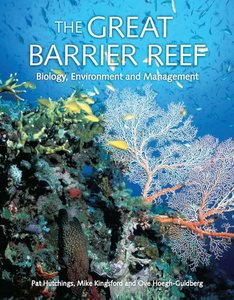Oceanography
Kingsford, M.J., and Wolanski, E. (2008) Oceanography. In: Hutchings, Pat, Kingsford, Mike, and Hoegh-Guldberg, Ove, (eds.) The Great Barrier Reef: biology, environment and management. CSIRO Publishing, Collingwood, VIC, Australia, pp. 28-39.
![[img]](https://researchonline.jcu.edu.au/7468/2.hassmallThumbnailVersion/7468_Hutchings_et_al_2008_Book_cover.jpg)
|
Image (JPEG) (Book Cover)
- Cover Image
Download (150kB) |
|
|
PDF (Published Version)
Restricted to Repository staff only |
Abstract
The coral reefs that form the GBR are scattered over the continental shelf, which is shallow and fringed by the deep water of the Coral Sea (Fig. 4.1). Oceanography affects in many ways the organisms and the nature of contemporary geological processes. Seawater erodes and shapes reefs; it influences the transport of sediment and the deposition of material to the substratum. Organisms of all sizes are affected by oceanography. The storm generated seas of cyclones destroy reef structures, kill organisms and alter the nature of habitats. Changes in habitats can in turn affect organisms that typically 'respond' to different habitat types and the influence of oceanography on habitats call influence broad scale patterns of biogeography. The richness of inter-reefal and reef based flora and fauna are strongly influenced by nutrient input from rivers and upwelling over the shelf break. In the pelagic environment, plankton have limited control of their horizontal movements and, therefore, transport and dispersion will be influenced by currents.
| Item ID: | 7468 |
|---|---|
| Item Type: | Book Chapter (Research - B1) |
| ISBN: | 978-0-643-09557-1 |
| Keywords: | oceanography; currents; sedimentation; tides; eddies and jets |
| Date Deposited: | 07 Jan 2010 04:15 |
| FoR Codes: | 04 EARTH SCIENCES > 0405 Oceanography > 040503 Physical Oceanography @ 50% 04 EARTH SCIENCES > 0405 Oceanography > 040501 Biological Oceanography @ 50% |
| SEO Codes: | 85 ENERGY > 8598 Environmentally Sustainable Energy Activities > 859899 Environmentally Sustainable Energy Activities not elsewhere classified @ 100% |
| Downloads: |
Total: 255 Last 12 Months: 6 |
| More Statistics |



